Many people who use family mediation are in a couple relationship that has or is ending. They may be married, civil partners, never married, living together or not, with or without children (or pets). Mediation can also used by other family members, such as grandparents wanting to spend time with their children, or adult children returning to live at home. Some people use mediation to make plans now that will help them avoid conflict in future, such as couples who are living together or planning to do so (living together agreement); or people planning to marry or who are already married (pre-nuptial and post-nuptial agreements).
You can discuss any practical arrangements arising out of the ending of your family relationship. With the assistance of the mediator, you and your partner will decide what you will talk about, and in what order. In the case of a separating couple, this might include arrangements for living separately; decisions about money and property, including pensions; payment of bills; or arrangements for your children (such as where they live and how they spend time with each of you; how you communicate and make decisions about them; special days and holidays). It can also include things such as telling the children about the separation, introducing new partners, or spending time with extended family such as grandparents.
No. Mediation is voluntary. Joint mediation sessions only take place if both you and your ex-partner want to mediate, and the mediator thinks it is suitable. You, your ex-partner, and indeed the mediator, can stop mediation at any time. If you want to issue court proceedings, you will need to attend a MIAM (see step 2 above) to show that you have made an effort to find out about family mediation – but you don’t have to go ahead with joint mediation sessions if you don’t want to.
You can still come to an assessment meeting to find out about mediation and other options and resources available to you. We will invite your ex-partner to attend an assessment meeting too. Sometimes people change their mind once they have attended an assessment meeting. We don’t force anyone to mediate if they don’t want to. If your ex-partner doesn’t want to mediate, we will issue you with a court form that will enable you to start court proceedings if you decide to do that. Be aware that people process separation differently, and at different rates, particularly according to whether they were the decision-maker or not. Both people need to be emotionally ready for mediation (that is, able to put your feelings to one side enough so that you can really listen to what the other person is saying and apply a problem-solving mindset to your situation) in order for it to work. And it helps to go at the pace of the slowest person. One or both of you may benefit from some brief counselling, either before or during the mediation process, to support you – we can discuss this in the assessment meeting. There is also scope to space the mediation sessions out in a way that is manageable for you both.
When couples separate, it is quite common for communication to have broken down. Mediators use techniques to get you to listen to one another, take turns, and see things from a different perspective. Just the presence of a third person can help keep the conversation civil, and different. If you really can’t be together, there is the possibility of mediating in separate spaces (note this takes longer). Mediation can only do so much; if one or both of you remain unwilling to listen, see things from the other person’s point of view, or negotiate, then mediation will break down.
Mediation is for people who have already made the decision to separate and want help sorting out practical arrangements for the future and, where they have children, focussing on the children’s needs first. Mediation is future-focussed, and not the place to examine what happened in the past or why the relationship failed. That said, where there are strong feelings of hurt, anger, betrayal, these often have to be named and articulated briefly in mediation, in order for a couple to be able to discuss future arrangements constructively. For mediation to be effective, you both need to be able to put your emotions to one side and respond, rather than react, to your partner. Some people find it helpful to have some brief counselling either before, or during, mediation, for emotional support. If you both hold out some hope of restoring your couple relationship, then you may want to explore couples counselling.
No. It is central to mediation that you both agree to any solutions, willingly and on an informed basis (this makes it different from court where the judge decides for you). We write up your proposals in a brief summary after each mediation session, so you can reflect on them between sessions and change your mind if you want. Some people find it helpful to trial any child arrangements and then tweak them as necessary before agreeing them.
It depends on you and your ex-partner and the issues between you. On average, mediation takes 3-5 sessions, spread over 3-4 months. Mediation is a process: you identify the issues you want to resolve; explore them; come up with options; reality-test your preferred option; document your agreement. The process isn’t always linear – things come up and you have to circle back to an earlier step in order to move forwards.
Survey results show that couples who mediated resolved some or all of their issues in mediation in 70% of cases. You can increase the chances of mediation working by remaining calm, putting your emotions to one side, and completing any "homework" tasks promptly. Mediation works best if you can trust your partner to be open and honest. Even if mediation breaks down, couples usually come away with a better understanding of where the other is at, what they are agree on, and areas of disagreement.
Mediators can provide legal information, but we cannot advise you what is best in your particular situation (as then we would cease to be impartial). It can be very helpful, and speed up the mediation process, if you each take some brief, independent legal advice alongside mediation. That way you know you are not asking for too much or too little, and you can negotiate confidently, knowing that what you are agreeing is within the scope of what a court would order. With financial mediations, you will also need a solicitor to make your agreement legally binding (usually through a consent order).
It might. But it is usually worth the time and cost of at least attending an assessment meeting, and maybe even a joint mediation session or two, to really find out whether or not mediation can help (knowing that you can stop mediation at any time). Even if you don’t agree everything in mediation, many people find that it helps clarify what they do and don’t agree on, and gives them a better understanding of where the other person is coming from. If you can’t reach agreement yourselves, then you are going to have to reach agreement some way – often through solicitor negotiation or court proceedings. Both of these will cost more in time and money than mediation, which is regarded as the cheapest, quickest and most peaceful way of resolving family conflict. You can also mediate alongside court proceedings so as not to lose any time (though be aware that issuing court proceedings tends to entrench conflict between you).
You have to attend an initial assessment meeting with a mediator (a MIAM) in order to commence court proceedings (unless you are exempt). So this is a great place to find out about your options and ask questions, so you can make an informed decision about whether mediation can help you or not. Mediation is not suitable in every case. But where it is, mediation is regarded as a cheaper, quicker, and more peaceful means of resolving family disputes. It is important to be aware that court proceedings can take a very long time, run to the court’s timetable (not yours), take up a lot of your time and energy, are very expensive if you use solicitors, increase conflict (particularly damaging for children) and ultimately result in a decision imposed on you by the judge that possibly neither of you will be happy with. Most people never “have their day in court”, but instead end up negotiating an agreement before that.
Mediation must be safe. We explore this with you in confidence as part of the assessment meeting, and keep it under review throughout the mediation process: you will have a chance to discuss any concerns you have, and how mediation might be tailored to meet your family’s needs, so you can make an informed decision about whether you wish to mediate. Even if both you and your partner wish to mediate, the final decision rests with the mediator. Once mediation starts, the mediator may also bring the mediation to an end at any time if it seems unsafe.
The assessment meeting is confidential between you and the mediator (we do not share what you say with your ex-partner). What you say in joint mediation sessions is confidential between you, your partner and the mediator. We give you a confidential summary of each session, which you can share with your solicitor to obtain advice. You cannot refer to your discussions in mediation in any court proceedings (except for financial information which is shared in mediation on an “open” basis and so can be referred to in court).
It is never too early or too late to attend an assessment meeting so you know your options and can plan accordingly. It can be helpful to mediate fairly early in the process, before disagreements between you become too entrenched. Mediating early can also reduce conflict and alleviate uncertainty for children. Mediation also works better when you are both emotionally ready. Mediation is flexible: you can decide to mediate an urgent issue first, and then return to other issues later; and you can agree interim or trial arrangements, before agreeing long-term arrangements.
We will encourage you to put the needs of the children first (particularly those under 18). For children aged 10 or over, our standard practice is to invite them to speak briefly to a specially-trained mediator (separate from the mediation sessions), so that they can have their voice heard as part of the mediation process, if they wish. This is called Child Inclusive Mediation, and is in line with UK government policy, and Article 12 of the UN Convention on the Rights of the Child (which provides that children should have the right to be consulted, in an age-appropriate way, on decisions which have a significant impact on them). This is not about children making decisions – that is a matter for you as their parents. Rather it is about giving them some sense of agency in a situation which probably impacts them deeply and over which they have no control, and gives them a safe space to say what they might not feel comfortable to say directly to you. Research shows that simply being offered this opportunity (whether the young person takes it up or not) is of great benefit to young people’s mental health. We will discuss Child Inclusive Mediation with you where applicable (usually in the assessment meeting).








